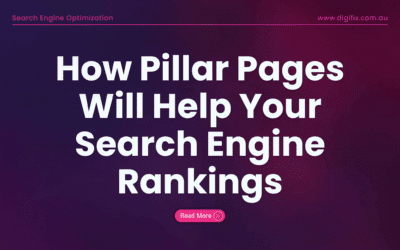Becoming proficient in SEO means learning many new terms and concepts, which can be challenging. We recognize your hard work and want to help by providing articles that simply explain these complex ideas.
Today, we’re looking at a fundamental SEO term: the “Slug.” In this blog, we’ll explain,
🐌What is a Slug in SEO?
🐌Importance of a Slug in SEO
🐌How to optimize a URL Slug with some URL Slug best practices?
Let’s clear up any confusion about this important topic and help you advance in your SEO knowledge.
What is a URL Slug?
A URL slug is the part of the URL that comes after the main domain name and before any parameters or queries.
The slug is found after the domain name and the first forward-slash (“/”). For example, in the URL “https://www.example.com/blog/how-to-bake-a-cake”, the slug is “blog/how-to-bake-a-cake”
A slug usually includes keywords that describe the page’s content. These words are often separated by hyphens to improve readability, like “how-to-bake-a-cake”
The slug makes URLs user-friendly and helps improve the search engine ranking of the webpage. A good URL slug can tell users and search engines what the page is about before they even visit it.
Importance of URL Slug for SEO
A URL slug is crucial for SEO for a couple of significant reasons:
a) Improved SEO Relevancy
URL slugs help search engines understand what your page is about, which can boost its visibility in search engine results pages (SERPs). Including target keywords in your URL helps Google categorize and rank your content more effectively for relevant queries.
For instance, John Mueller of Google has stated that Google considers words in a URL as a light ranking factor, especially when it hasn’t yet indexed the content of the page.
Therefore, a slug like “easy-chocolate-recipes” for a web page on chocolate dessert ideas aligns closely with what people might search for, improving your content’s relevance and search ranking.
b) Enhanced User Experience
A well-designed slug improves user experience by making your URLs readable and easy to understand for both humans and search engines. This readability makes your website more navigable and helps users remember how to find your content, which is key for direct traffic and return visits.
Instead of using nondescript or system-generated slugs like https://example.com/12345-article/, it’s better to use descriptive, keyword-rich slugs that clearly tell what the page is about, like https://example.com/tips-for-effective-gardening/.
Think of a URL slug as a quiet yet powerful helper in your SEO strategy, guiding users and search engines to your content with clarity and precision.
How to Optimize a URL Slug | URL Slug Best Practices
Optimizing URL slugs is crucial for improving your website’s search engine rankings and user experience.
URL slugs that are short, descriptive, easy to read and include relevant keywords help both search engines and users understand what the page is about. This clarity can improve your site’s SEO by making it more likely that your pages will rank for relevant searches.
Steps to Optimize Your URL Slug,
1. Add Your Focus Keyword
Including a focus keyword in your URL slug makes it relevant to what users are searching for, aligning it with common search queries. This relevance is important for SEO as it helps search engines determine the relevancy of your content for certain keywords.
Choose the primary keyword that best describes the page’s content and make sure it appears in your slug. For example, if your content is about “how to do SEO keyword research,” you might use seo-keyword-research-guide or keyword-research. This approach ensures that the slug reflects the main topic of the page effectively.
In summary, SEO-friendly URL slugs are a fundamental element of SEO that helps improve visibility and user interaction with your website.
2. Keep the URL Slug Short
Shorter URLs are easier for users to read and remember. They are also more visually appealing in search results. For instance, using easy-pancake-recipe is more clear and user-friendly than find-the-best-easy-pancake-recipe-here.
Longer slugs often get truncated in search engine results pages (SERPs), making it hard for users to see the entire URL. This truncation can affect the user’s ability to quickly understand what the page is about and may impact click-through rates.
Aim to keep your slug concise, ideally using fewer than five words. This helps to ensure the entire slug is visible in SERPs and is easy to understand at a glance.
Good URL slug: /abs-exercises
Bad URL slug: /the-best-abs-exercises-for-all-levels-of-gym-goer
Remember, while a truncated URL isn’t necessarily dangerous to SEO, a clear and concise URL can enhance the appearance and effectiveness of your page snippet in search results, improving user experience and engagement.
3. Be descriptive
Your slug should serve as a summary of your page’s content. This not only helps users understand what to expect from the page but also helps search engines in accurately indexing and ranking your content for relevant searches.
For example, for a blog post about budget travel in Europe, a slug like “budget-travel-europe-tips” is specific and informative. It immediately tells users and search engines the focus of the content.
A generic slug like `travel-tips` is too vague. It doesn’t provide enough detail to distinguish the content from other travel-related pages, which might cover entirely different aspects of travel.
Always ensure your slug is meaningful and descriptive. It should quickly convey the essence of the page’s content, making it easier for users to identify relevant information and for search engines to align your page with the right queries. This approach enhances visibility, engagement, and the overall effectiveness of your SEO strategy.
4. Avoid Special Characters
Avoiding special characters in URL slugs is essential for making them easy to read and SEO-friendly. Here are different examples to explain why and how you should maintain simple and clean URL slugs:
Avoiding Apostrophes: Apostrophes are special characters that get encoded (converted into % symbols and numbers), making the URL look messy and harder to interpret.
Bad Slug: women’s-clothing-sale
Good Slug: womens-clothing-sale
Avoiding Ampersands and Other Special Characters: Characters like & and @ are not recognized properly by search engines and can break the URL’s functionality when shared or linked.
Bad Slug: tips&tricks-for-baking@home
Good Slug: tips-tricks-for-baking
Avoiding Numbers that look Like special characters: Using @ next to numbers can be confusing and may imply special character usage, which can disrupt search engine parsing.
Bad Slug: top-10@2023-trends
Good Slug: top-10-trends-2023
Avoiding Emojis: Emojis in URLs can lead to broken links and are generally not supported or properly processed by many search engines and browsers.
Bad Slug: 🎉party-supplies🎈
Good Slug: party-supplies
In all these examples, the ‘good’ slugs are simplified and free from any characters that might be misinterpreted or poorly handled by browsers and search engines. This clarity improves the website’s search engine optimization (SEO) and enhances user experience by making the URLs more predictable and easier to share and remember.
5. Use only Lowercase Letters in a Slug.
Lowercase letters are easier to type, especially on mobile devices, and reduce the likelihood of typing errors when entering URLs manually.
Avoiding case sensitivity issues: Some servers and technologies differentiate between uppercase and lowercase letters in URLs, which can lead to broken links or duplicate content issues if not handled consistently.
Professional appearance: Uniform lowercase usage in URLs presents a cleaner, more professional look and conforms to common web standards.
Example,
Less Effective: `YourDomain.com/About-Us`
More Effective: `yourdomain.com/about-us`
The all-lowercase version prevents confusion and mistakes, ensuring that users reach the intended page without case sensitivity issues.
Adopting lowercase letters uniformly across your website’s URLs not only enhances user experience but also supports SEO by ensuring that links are accessible and function correctly across different platforms and technologies.
6. Avoid putting dates
Avoiding dates in URL slugs is a strategic choice to help keep your content evergreen and relevant over time.
Why Avoid Dates in Slugs?
Dates in URLs can make the content seem outdated once the year passes, potentially preventing users from clicking on what they might perceive as old or irrelevant information.
Content that appears timeless may continue to attract traffic year after year, contributing positively to SEO as it accumulates views, backlinks, and authority.
“yourdomain.com/seo-trends-2023”
-This slug ties the content specifically to 2023, which could reduce its perceived relevance in subsequent years.
“yourdomain.com/seo-trends”
– This slug remains relevant indefinitely, encouraging clicks even as years pass since it does not specify a temporal context.
By avoiding dates in URL slugs, you enhance the potential for your content to remain valuable and traffic-generating over a longer period, helping to build a more robust and enduring web presence.
Well, that’s about it. I hope you have a sound knowledge about “What is a URL Slug” and the importance of a slug for SEO along with how to optimize a Slug to get better results.
These practices help ensure that your URLs are not only optimized for better rankings but also more accessible and appealing to users, thereby driving more traffic and engagement over time. Adopting these strategies will set a solid foundation for your site’s SEO efforts and contribute to its long-term success.
Keep in touch because we are about to bring more articles that will help you become a Pro in SEO.
Do you want more traffic?
—————
Hi, we are an Australian digital agency doing groundbreaking work to help a business like yours reach its full potential. My only question is will you qualify for our services?
Do you want more traffic?
—————
Hi, we are an Australian digital agency doing groundbreaking work to help a business like yours reach its full potential. My only question is will you qualify for our services?





0 Comments